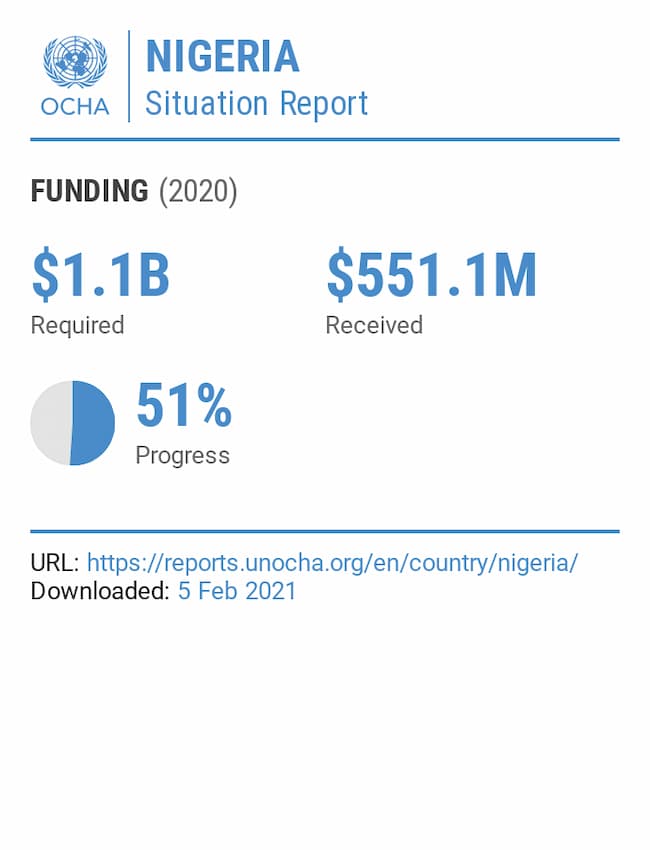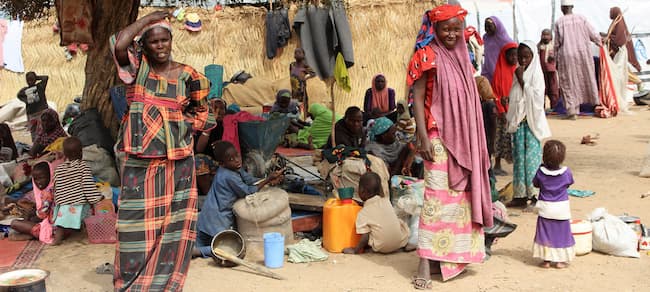Funding shortfall and challenges posed by the COVID-19 pandemic has pushed up the number of people in need of humanitarian assistance in Nigeria to 10.6 million in January from 7.9 million, a United Nations report stated.
There is a funding gap of $548.9 million required to meet the needs of displaced people in Nigeria, the United Nations Office for the Coordination of Humanitarian Affairs (UNOCHA) stated in its situation report of Nigeria released on Thursday.
Funding will be crucial to enable partners to scale up support to Borno, Aadamawa and Yola (BAY) states, which are already struggling with paucity of resources and weak health systems, it stated.
Despite these challenges, the agency said the humanitarian community reached about five million people with multi-sectoral response across the BAY states in 2021.
‘As of 31 December, only 51 per cent of the $1.08 billion required for the humanitarian response had been received, reinforcing a declining trend in funding since 2017,” it stated.
READ ALSO: FG Begins Process Of Rebasing GDP
The UN agency warned that up to 5.1 million people were at risk of being critically food insecure during the next lean season (June to August 2021).
It represented 19 per cent increase in food insecurity compared the same period in 2020 and 34 per cent increase, compared to the corresponding period in 2019.

“The November Cadre Harmonisé (CH) analysis now projects that up to 5.1 million people risk being critically food insecure during the next lean season (June to August 2021). Food insecurity at such large scale had not been recorded since 2016-2017 when some worst-affected locations faced famine-like conditions,” it stated.
“As part of efforts to avert a major food crisis, the UN Emergency Relief Coordinator (ERC) Mark Lowcock in mid-November approved $15 million for urgent food aid in the BAY states.”
Citing the WFP December 2020 Market Monitoring, it said the flow of food into markets, following harvest, has contributed to stability in the prices of a few food items such as maize and local rice.
READ ALSO: 20 million Nigerians At Risk Of Joining Poverty Rank By 2022, W’Bank Warns
However, it explained that overall prices of key staples remained generally above their values as of December 2019, mainly due to the impact of high transport costs, flooding and the significant weakness of the Naira.
“Therefore, the early September 2020 advocacy by the Food Security sector for an increase in transfer values still holds,” UNOCHA said.
It said the humanitarian crisis in North East Nigeria remained one of the largest and most severe in the world.
The report stated that continuing conflicts still severely affects millions of people in 2021, subjecting them to displacement, impoverishment and threat to violence.
According to the agency, the hardship is compounded by the COVID-19 pandemic which has caused gender vulnerability, deepens humanitarian needs and complicated response.
In 2021, the agency estimated that about 8.7 million people will need urgent humanitarian assistance, most of them women and children.












